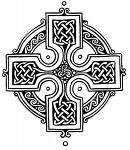Friday, March 19, 2010
March 20th Saint Cuthbert Feast Day
Forgive a brief digression from my blog series on Alan Hirsch's wonderful book The Forgotten Ways. March 20th is Saint Cuthbert's Feast Day. Saint Cuthbert is one of my heroes. Cuthbert was a monk and bishop in Northumbria during the 7th century. He combined a deep personal holiness and spiritual walk with Christ with a ardent commitment to justice and a vibrant passion for evangelistically sharing the love and lordship of Christ. The three -- deep spirituality, justice and evangelism -- went together naturally in ways most of us only vaguely speak about. David Adam in Fire of the North: The Life of Saint Cuthbert writes: “Cuthbert penetrated deep into the mountain areas, going where others had been afraid to go, into areas where poverty and ignorance made the people unattractive; Cuthbert saw them as children of God awaiting their redemption. Such ordinary people heard him gladly. He, in turn, attended carefully to instructing them. This meant he was often away from Melrose for two or three weeks at a time, and sometimes even a month. His own example, as well as his teaching, won over the hill people.” A prayer of Cuthbert's is offered for our sharing.
“WE DWELL IN HIM
“Dear Lord our God,
Help us to see Christ
In others,
Help us to receive Christ
From others,
Help us to share Christ
With others,
Help us to be Christ
To others,
Help us to bring Christ
To others.
Help us to see that
In him we live and move
And have our being,
That we dwell in him,
And he dwells in us.”
Thursday, March 18, 2010
The Forgotten Ways IV
Recently my son Nathan sent me an email link to the blog of Walter Russell Mead. Mead wrote in a March 14 blog “Sometimes mainline church leaders remind me of the Pope who showed St. Francis around the Vatican to see the many treasures of the church. “Peter can no longer say ’silver and gold have I none’,” chuckled the pontiff.
“Neither can he say ‘rise up and walk’,” snapped St. Francis.
I can only imagine [continues Mead] what Francis Asbury would say to a Methodist convention today.
The mainline churches do a lot of good, but the long inexorable decline both in numbers and in the influence of Christian ideas in modern American life show very plainly that something critical has gone wrong. In attempting to reconcile classic Christian ideas and standards with modernity, the mainline has somehow lost American Christianity’s characteristic and most vital strength: the ability to electrify generation after generation with the call to begin a transformational encounter with the person of Christ.
This ability can’t be regained by committee. There is no diocesan or denominational planning process that can knit the dry bones together.
But the mainline churches will dwindle and diminish if they don’t somehow reconnect with the enthusiasm and charisma that once made them great.” (http://blogs.the-american-interest.com/wrm/2010/03/14/wanted-a-mainlinegelical-church/)
At the heart of recovering a vibrant Christianity is the rediscovery and radical reapplication of the Lordship of Jesus Christ. Our disputes (theological, missional and otherwise) have to be submitted to His Lordship. Our actions and ministry have to be guided by a sold out conviction that Christ rules our lives and our ministry. Hirsh writes in The Forgotten Ways "I have become absolutely convinced that it is Christology, and in particular the primitive, unencumbered Christology of the NT church, that lies at the heart of the renewal of the church atl all times and in every age." (p. 99) So am I!
Subscribe to:
Comments (Atom)
